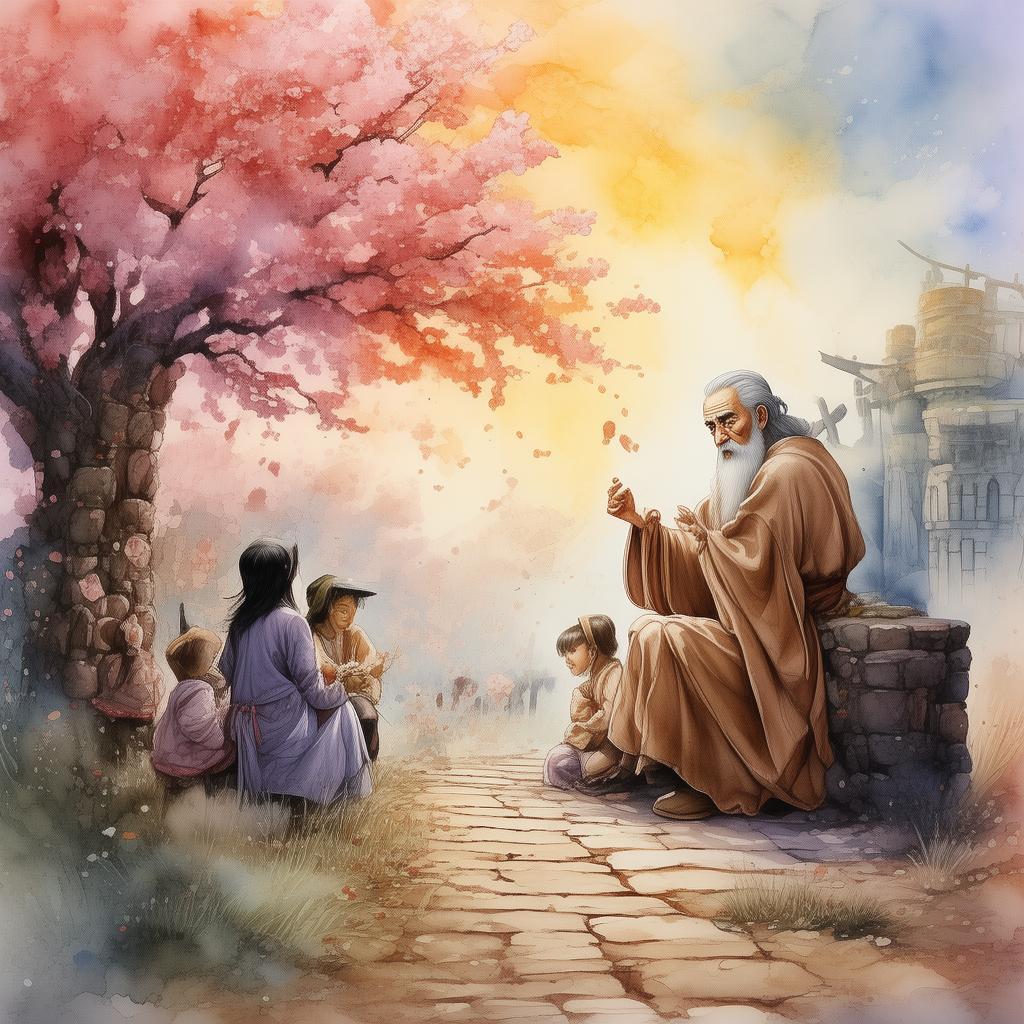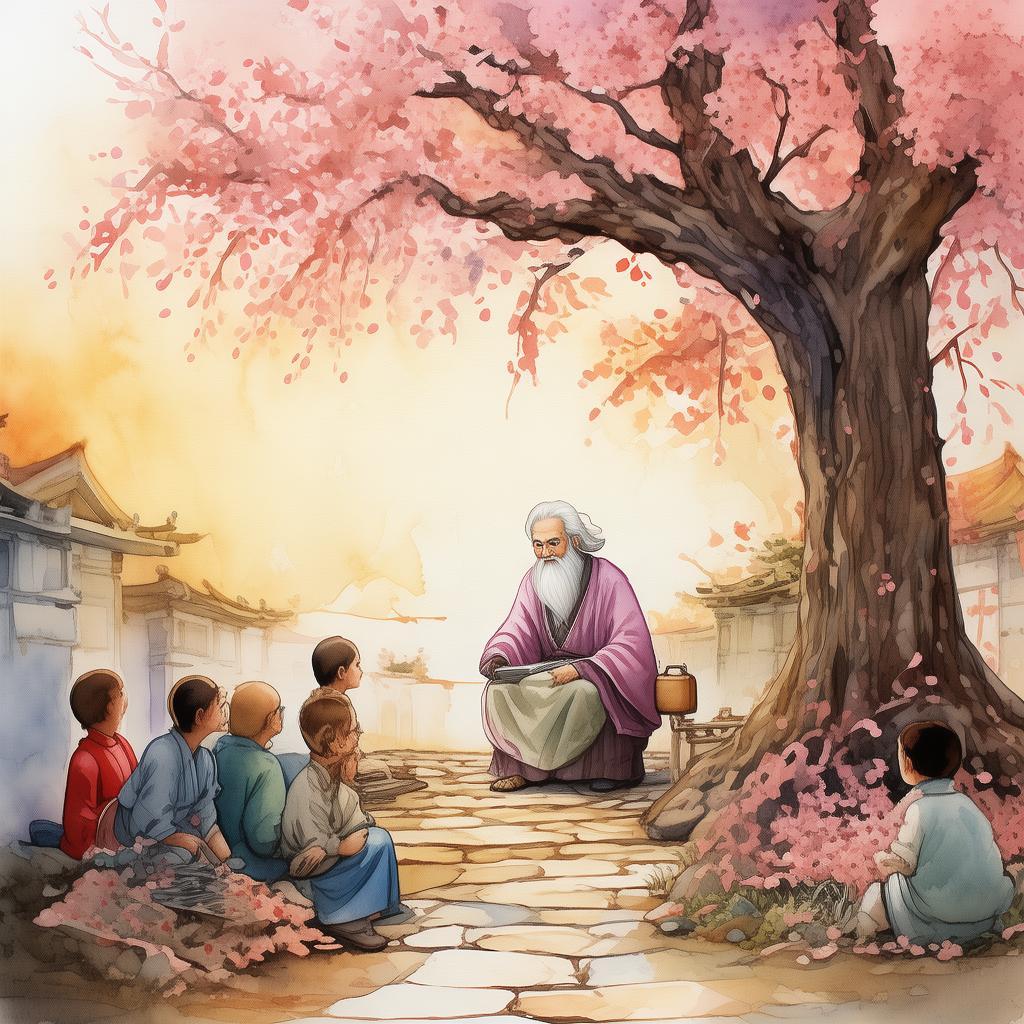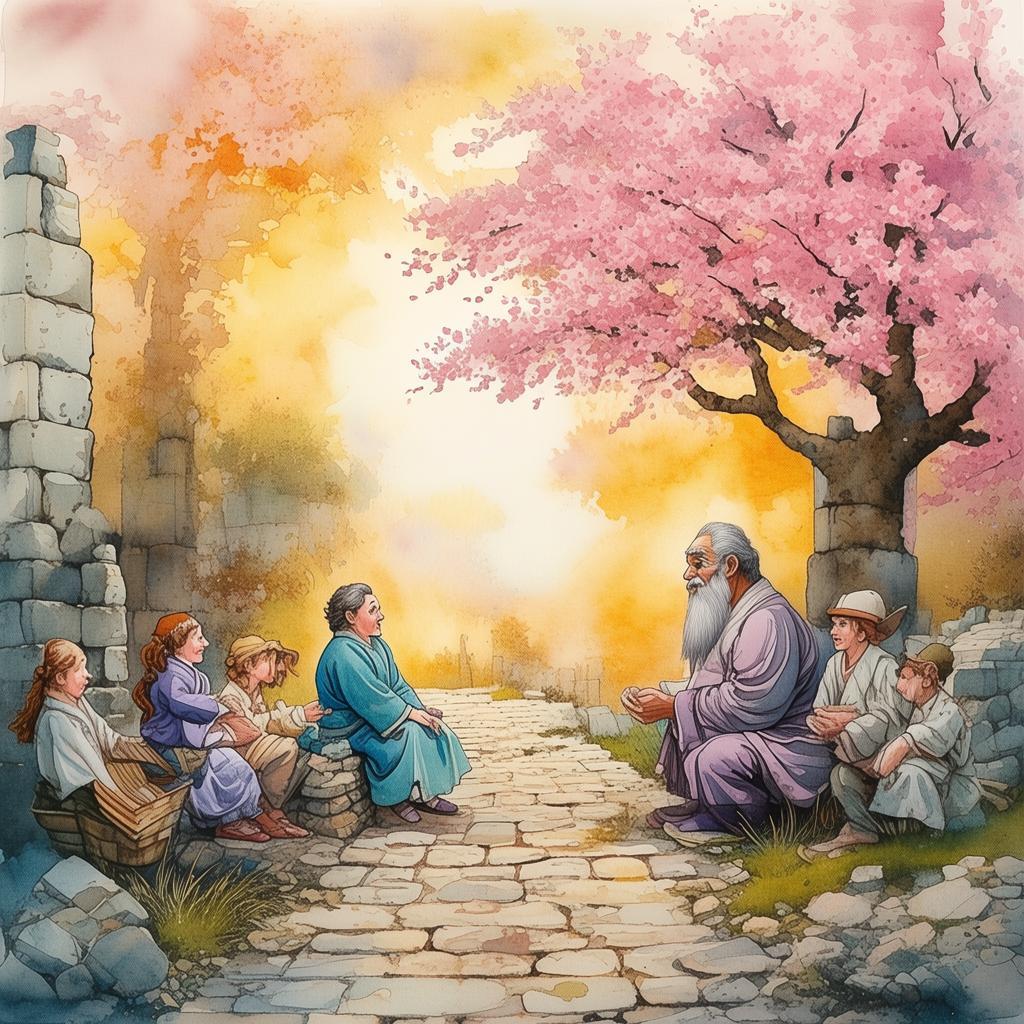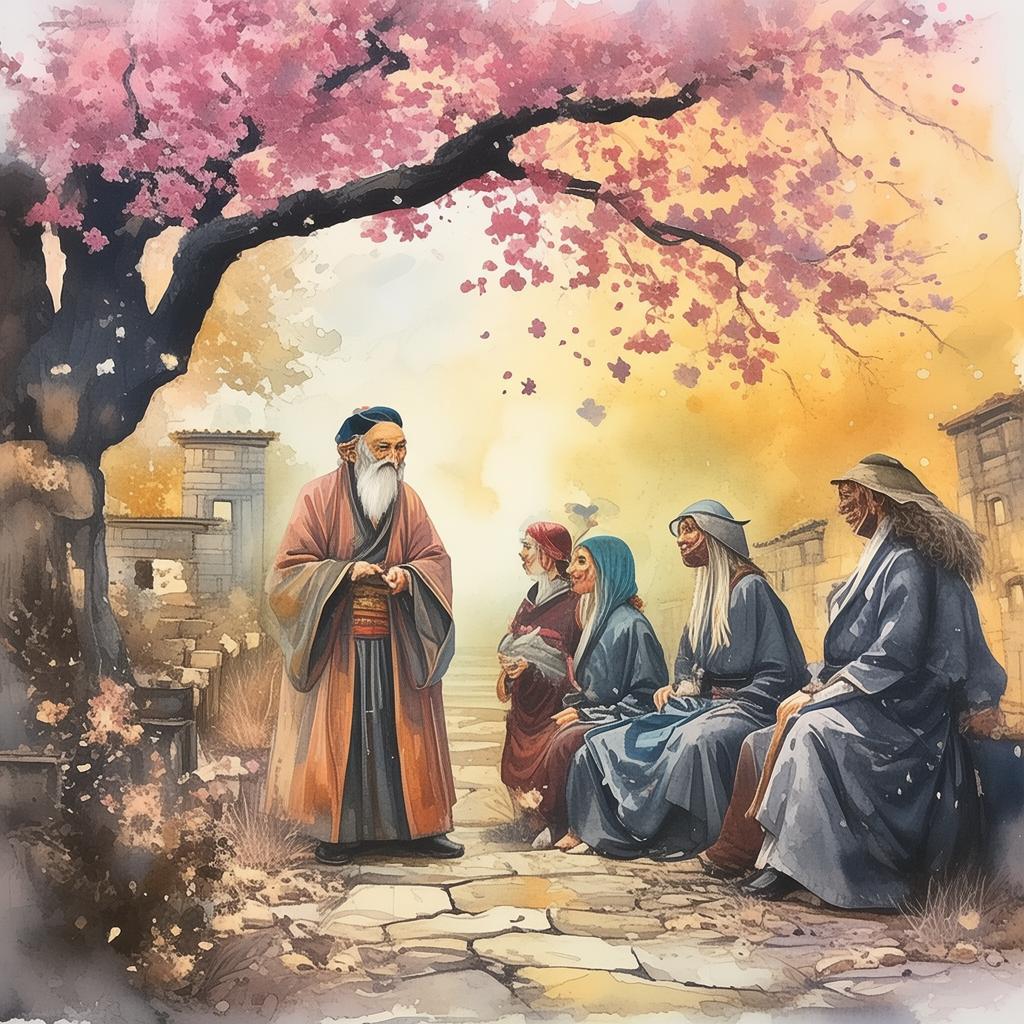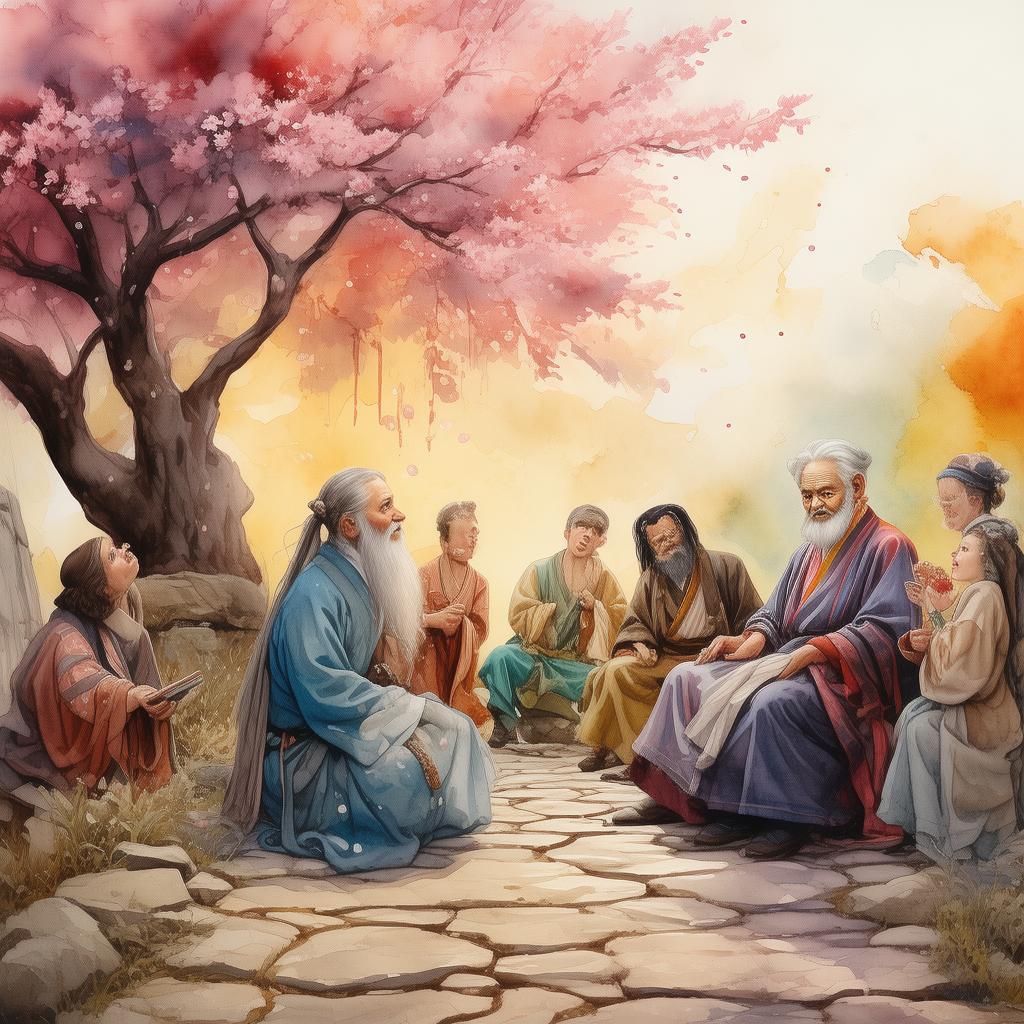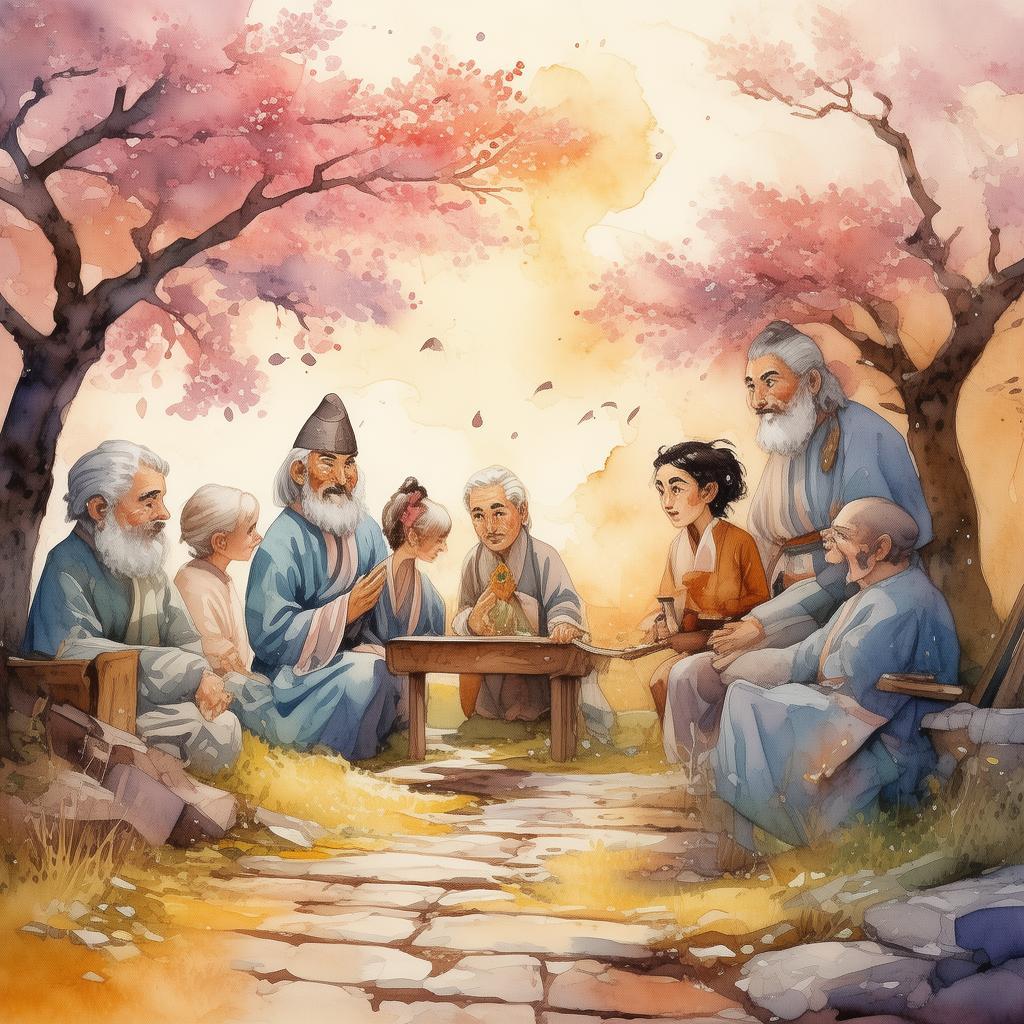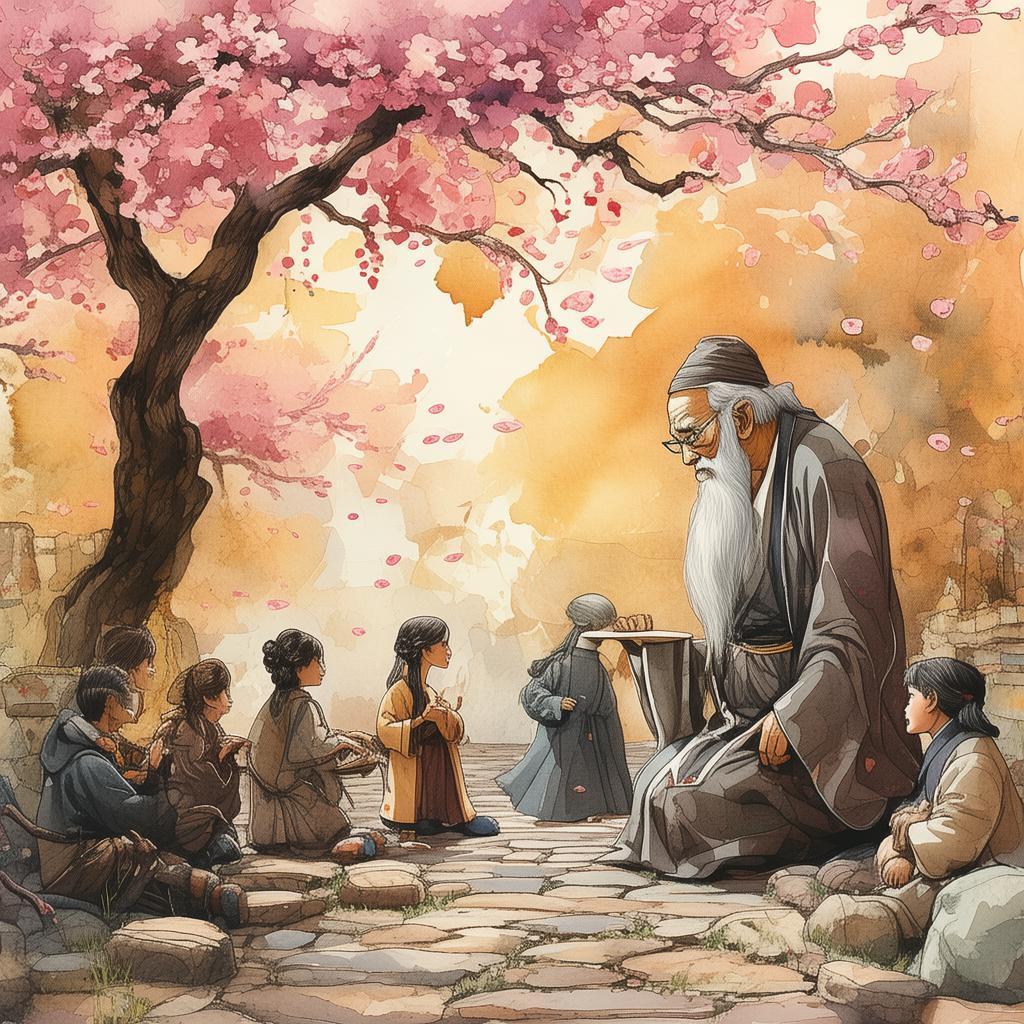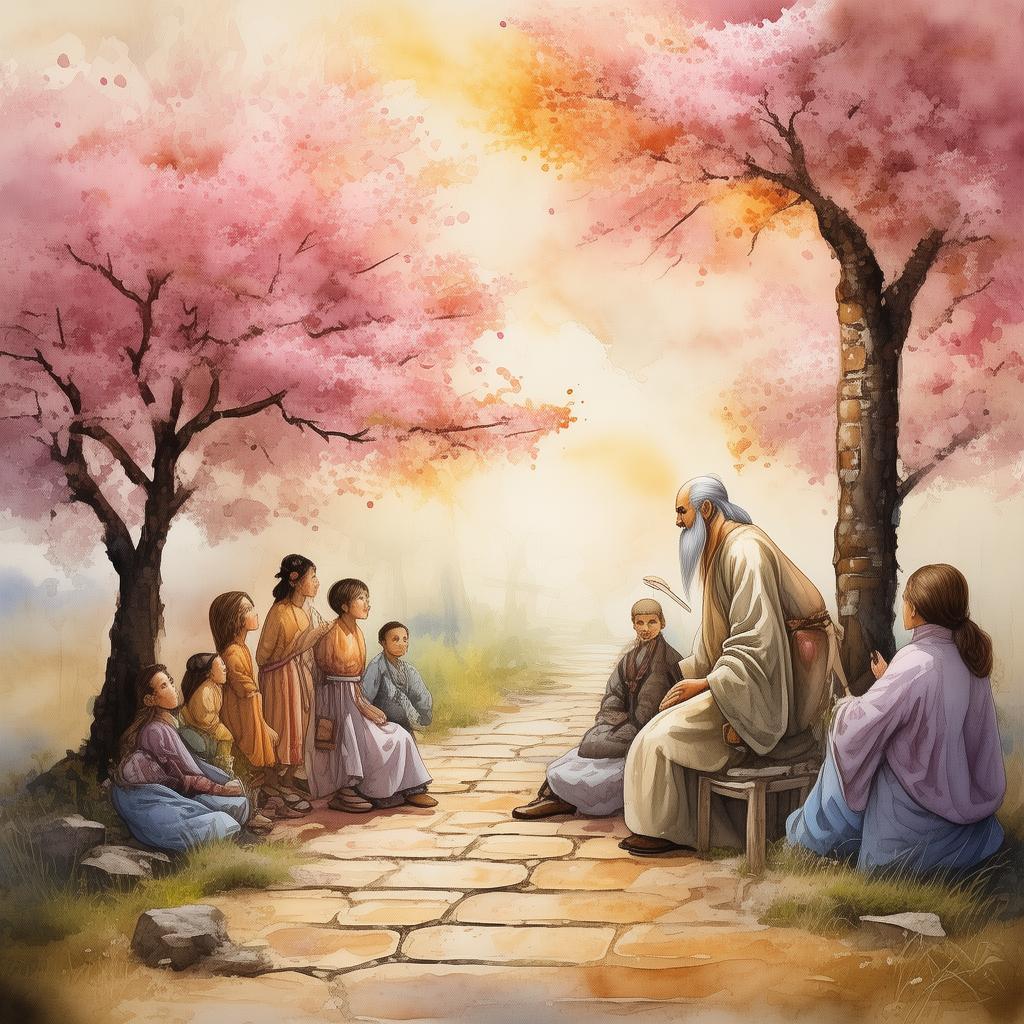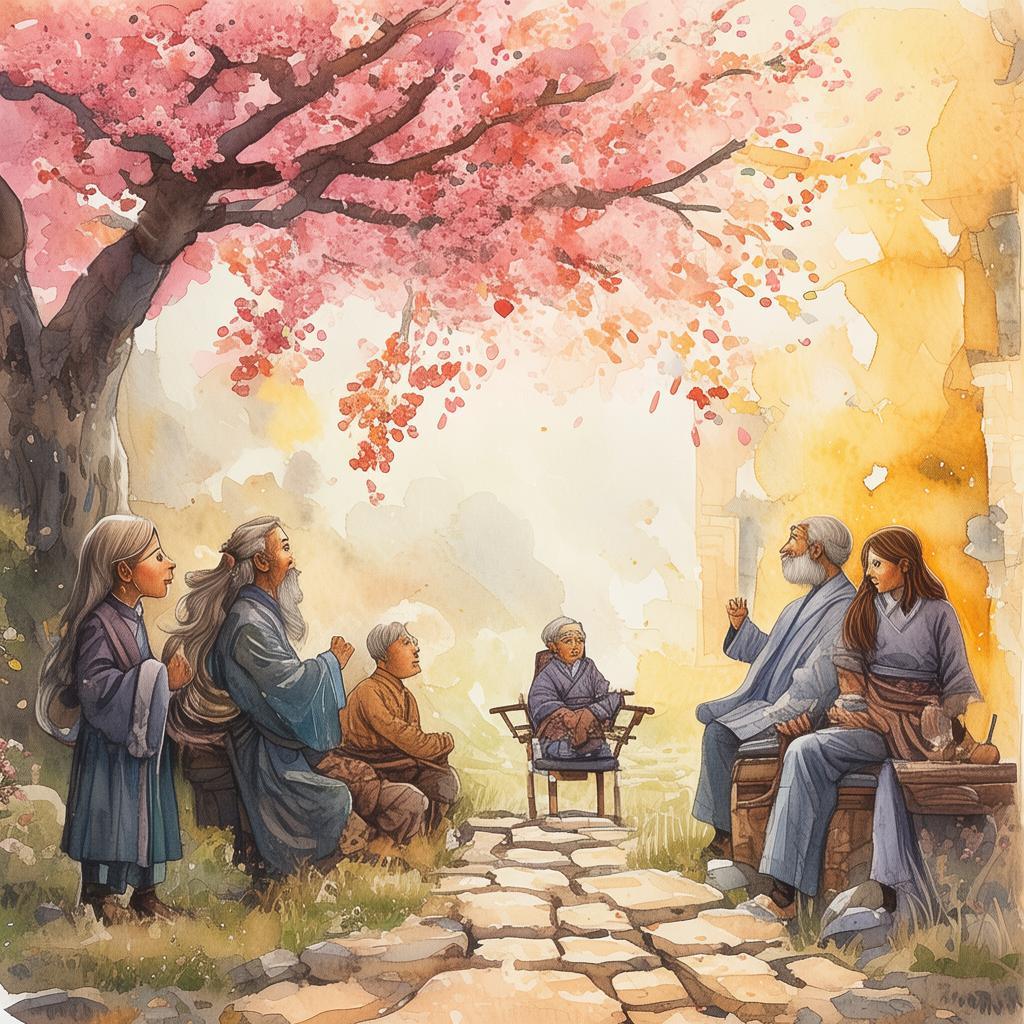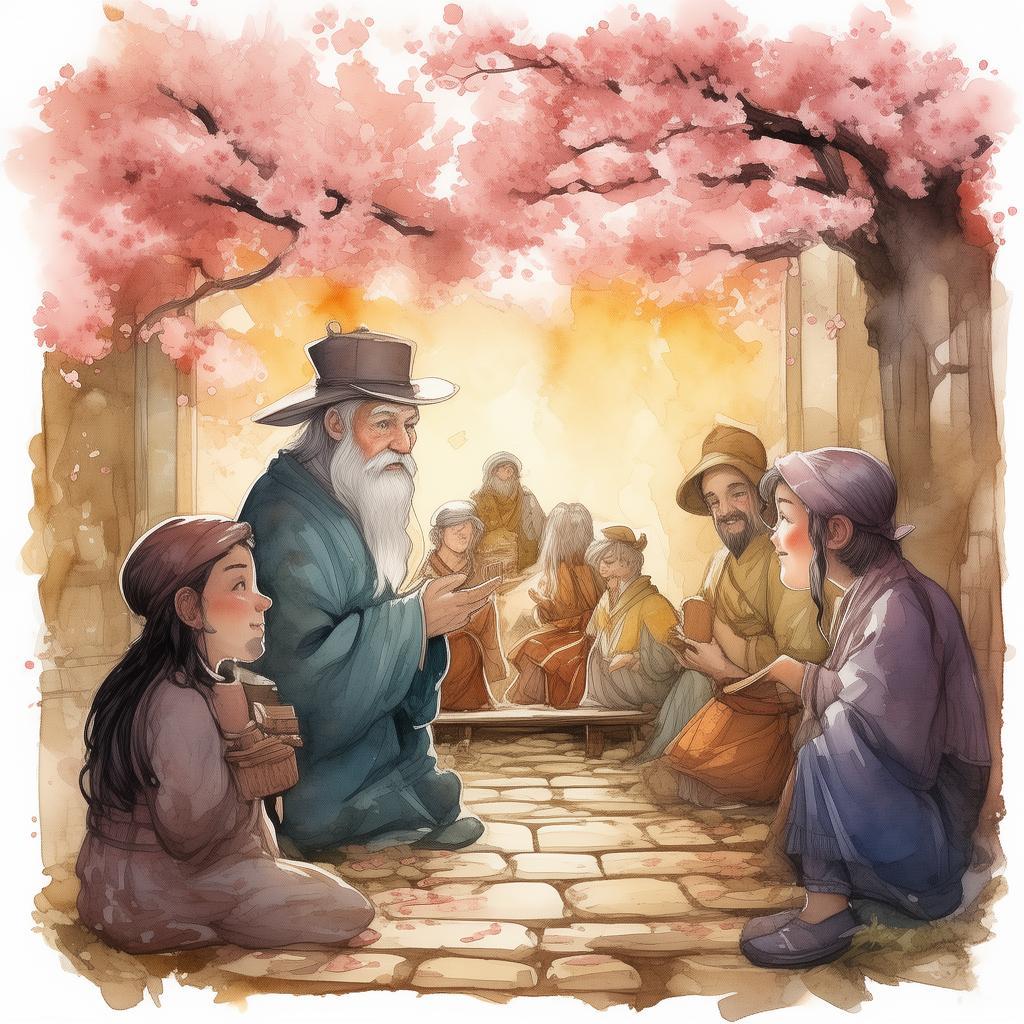The Philosopher's Dilemma: The Chessboard of Fate
In the heart of an ancient library, shrouded in the dust of countless tomes, there was a peculiar room that no one ever spoke of. This room was said to hold the essence of the universe, a place where time stood still and thought danced freely. The room was called "The Philosopher's Parlor," and within its walls, there was a single, ornate chessboard.
The chessboard was unlike any other; it was not made of wood or stone, but rather woven from the very fabric of reality. Each piece was a symbol of life's greatest conundrums, and the game that was played upon it was the game of fate itself. It was said that the one who mastered the game would unlock the secrets of the cosmos and become a sage beyond compare.
One day, a young philosopher named Lin came to the Parlor. He had heard tales of the chessboard and its power, and he was determined to unravel the mysteries that lay within. As he took his place across from the chessboard, a voice echoed from the shadows, "Welcome, Lin. You have chosen wisely. The game begins now."
The pieces moved on their own, each one representing a different aspect of life. Lin found himself in a game of chess that was not just about tactics, but about philosophy. The knight symbolized the leap of faith, the pawn the struggle of the common man, the bishop the balance between good and evil. The queen, a figure of power and control, and the king, the protector and the vulnerable one.
As the game progressed, Lin found himself facing a dilemma. He was in checkmate, but he could not make the move that would end the game. The queen was blocked, the bishop was surrounded, and the pawn was too far away to reach the king. The knight, the only piece that could save the king, was itself in check.
In that moment, Lin realized that the game was not just about the chessboard; it was about the choices he made in life. He could sacrifice the knight, his hope and his future, to save the king, his present. Or he could make a move that would lead to his own demise, but would also allow the knight to live on, representing the continuation of his spirit.
Lin sat for a long time, pondering the choices before him. He thought about the countless lives that had been lost and the ones that were yet to be lived. He thought about the nature of fate and the role of free will. The room seemed to hold its breath, waiting for his decision.
Finally, Lin made his move. He did not sacrifice the knight, nor did he move the king to its death. Instead, he moved the pawn. The pawn, which represented the struggle of the common man, stepped forward. It was a move that was against all chess rules, a move that should have led to Lin's defeat.
But as the pawn stepped forward, the board changed. The queen, the bishop, and the knight were freed from their constraints. The king, no longer in checkmate, was saved. The pawn had become the queen, and the game had been won.
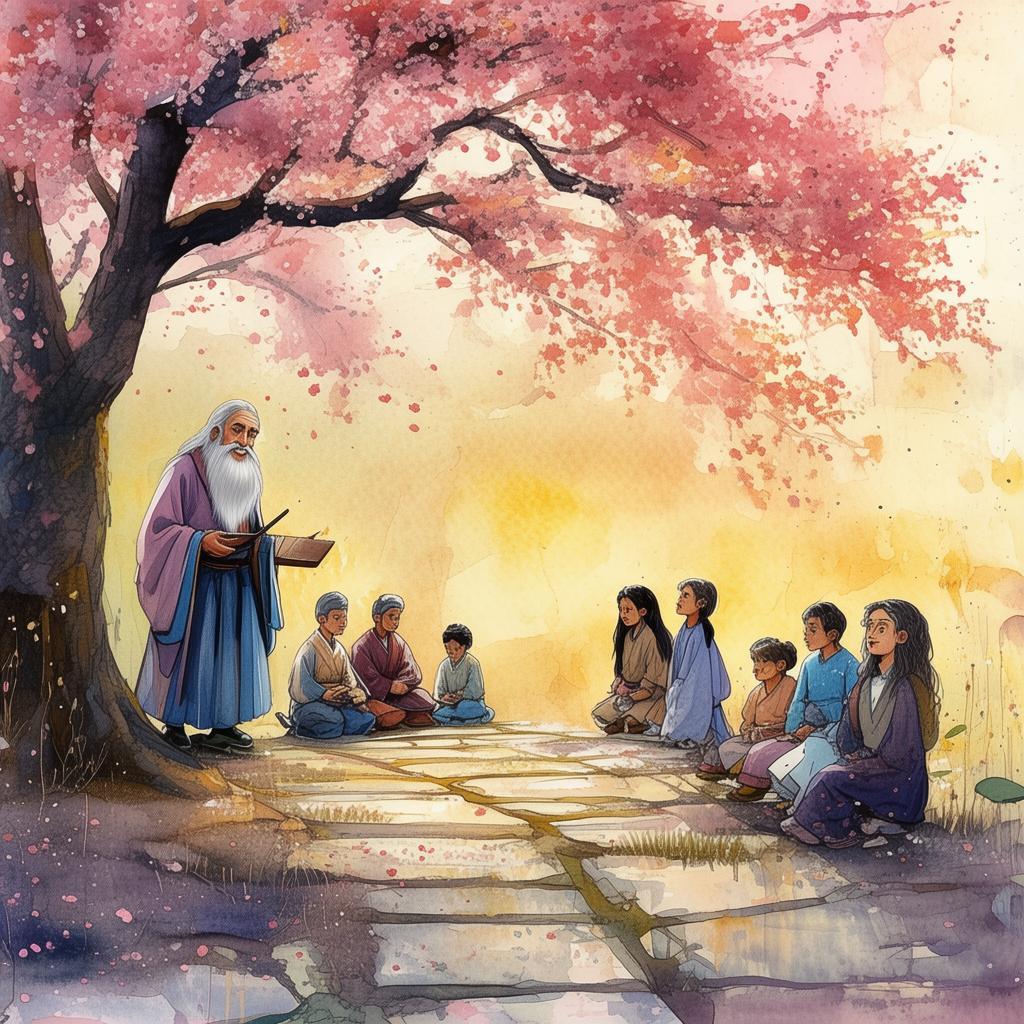
The voice from the shadows spoke again, "You have won, Lin. You have mastered the game of fate. Now, you must live out your life according to the wisdom you have gained."
Lin left the Parlor, a new man. He walked the streets of his village, his eyes now seeing the world in a different light. He realized that life was indeed a game of chess, and that each move we make can change the course of our destiny. The pawn, the common man, could become the queen, a symbol of power and wisdom.
The story of Lin and the Philosopher's Chessboard spread far and wide. It became a parable of life's endless questions and the choices we must make. It taught that even in the face of overwhelming odds, there is always a way to win, and that the greatest victory lies in the wisdom we gain along the way.
And so, the tale of Lin and the chessboard became a part of the collective consciousness, a reminder that within each of us lies the power to change our fate, and that the game of life is one that is always worth playing.
✨ Original Statement ✨
All articles published on this website (including but not limited to text, images, videos, and other content) are original or authorized for reposting and are protected by relevant laws. Without the explicit written permission of this website, no individual or organization may copy, modify, repost, or use the content for commercial purposes.
If you need to quote or cooperate, please contact this site for authorization. We reserve the right to pursue legal responsibility for any unauthorized use.
Hereby declared.
